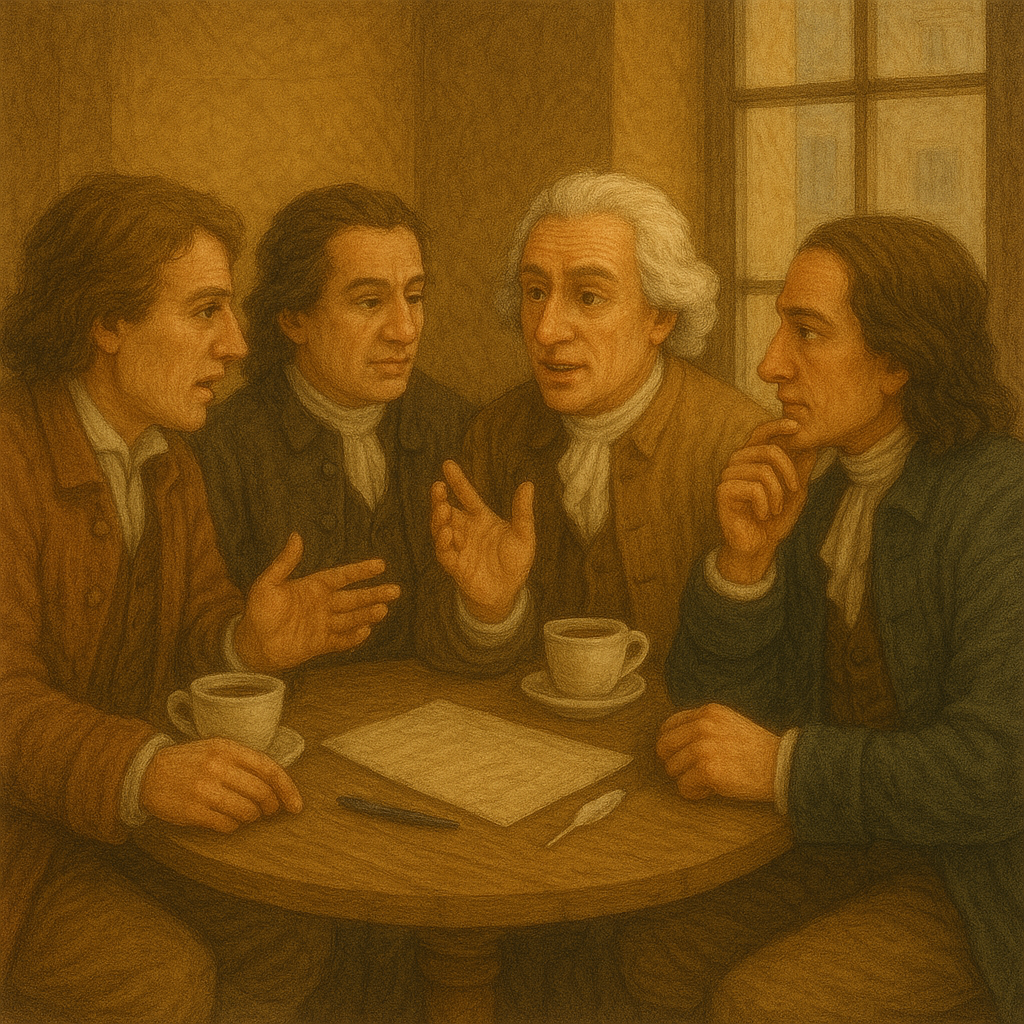Lesson 1: Ideas of the Enlightenment (Enlightenment and Revolution)
💡 A Time of New Thinking
The Enlightenment was also called The Age of Reason. 🕯️
During this time, people began to use logic and reason to understand the world. They asked big questions:
What is a fair government?
How can we improve society?
What rights should all people have?
These ideas were new and powerful — and they helped change the world.
🧠 Society by Reason, Not Tradition
Enlightenment thinkers believed that society and government should not be based on tradition or kings. Instead, they thought people should use reason to decide what is fair.
📖 Story: Imagine a group of people sitting in a café in Paris. They are not nobles or priests — just smart citizens talking about justice and freedom. These were the early philosophers of the Enlightenment.
🛑 Speaking Against Censorship
Some governments tried to stop new ideas by using censorship. This meant people could not publish or speak freely.
But many Enlightenment thinkers fought back.
One famous voice was Voltaire. He believed in freedom of speech and wrote many clever books. He often poked fun at kings, churches, and unfair laws using jokes and fiction. 😂📚
He once said, “I may not agree with what you say, but I will defend your right to say it.”
🧵 Women Join the Conversation
At this time, most women could not vote or lead. But they still helped shape Enlightenment ideas.
In salons — private homes where people met to talk — women hosted and led discussions. These salons were places where new ideas were shared. 🫖🪑
📖 Story: Madame Geoffrin, a woman in Paris, invited writers, scientists, and artists to her salon every week. Some of the most famous Enlightenment ideas were born in her living room!
👩 Mary Wollstonecraft Speaks for Women
Mary Wollstonecraft was one of the first women to speak up for women’s rights.
She believed women should get a good education so they could be strong in mind and body. 📖💪
She said women were just as smart as men — if given the chance to learn.
Her book A Vindication of the Rights of Woman helped start the fight for equality.
🕊️ Enlightenment Goals
Enlightenment scholars believed human reason could help achieve:
Knowledge (learning more about the world)
Freedom (for all people)
Happiness (by building better lives)
They believed reason could make the world a better place.
🔄 Just Like the Reformation?
The Enlightenment was a little like the Reformation. Both times:
People began to question old ideas.
They used books and printing to spread new thoughts.
They challenged powerful leaders, like kings and church officials.
🎨 What Humanists Believed
Renaissance humanists believed that people could improve the world through education, art, and science.
They said: “Look at what humans can do!”
The Enlightenment took this further: “Look at what humans can think!”
